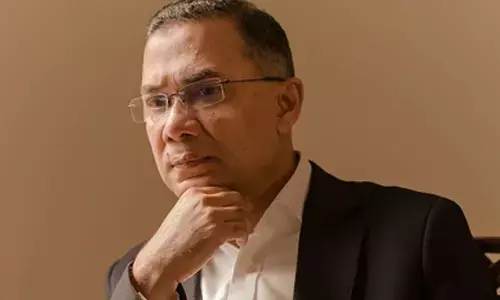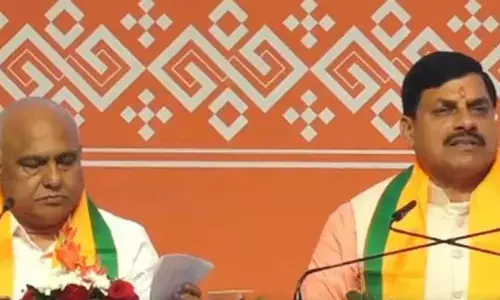Why Do Monks/Swamis Teach Vedanta?

Why Do Monks/Swamis Teach Vedanta?
When I was posted as the Director General of Police, Andhra Pradesh, about 13 years ago, there was a cartoon in a leading Telugu daily which showed me standing next to the body of a dead Naxalite, saying, ‘Who is the slayer, and who is the slain’.
When I was posted as the Director General of Police, Andhra Pradesh, about 13 years ago, there was a cartoon in a leading Telugu daily which showed me standing next to the body of a dead Naxalite, saying, ‘Who is the slayer, and who is the slain’. The cartoonist knew of my interest in Vedanta. The point made by him was correct. Half-digested Vedanta can make a person do atrocious things with no qualms. For instance, Vedanta says, ‘You are Brahman’, the Highest Reality, above all sin or merit. Taking this at face value, anyone can think that he/she is Brahman and behave morally recklessly. How to handle this? This is a problem.
A more important problem is this. The idea of an omnipotent, omniscient person sitting in an enchanted place and governing us is not an acceptable idea to rational beings. But most common people need God, and they already believe in some form of God. So how does Vedanta handle this issue?
Another person would say, ‘I have studied Vedanta, I need not do any karma, need not go to a temple, need not worship or perform any ritual, I am spiritual but not religious’. This movement – spiritual but not religious (known as SBNR), is growing in society. Such people do not set any example to their children or to others who may be taking them as an example. How to handle that?
These are some main questions that must be resolved in the light of Vedanta. Here the swamis come into picture.
To tackle the first person with enlightened self-interest, the scriptures say it is essential first to train a morally responsible person and then only teach Vedanta to him. For this, the Gita tells steps like karma yoga, atma-samyama (self-restraint) yoga, dhyana (meditation) yoga etc., to train a person to be a responsible member of society who would not misinterpret scriptures. (Such training may be essential to all people in high places). Then, only a person with a pure mind becomes eligible to study Vedanta. Nowadays we teach Vedanta to one and all because of other reasons such as information explosion and the possibility of misunderstanding.
The second question is about God. As told in earlier articles, Vedanta defines the highest reality as infinitely existing consciousness, which has a power in it to manifest as matter (universe), and all beings evolve from that. But who cares for logical reasoning? There were already several religious traditions in the vast land of Bharat Varsha. Shiva worship was predominant in some areas, Vishnu was supreme in some, Ganesha was supreme in some, Sun was supreme in some, Durga was the Supreme goddess in some places and so on. Any name and form is acceptable when the supreme reality is an impersonal, formless entity. It is not practical to tell Vedanta to the common man. Hence, we see from our puranas that the sages allowed different traditions to go on but superimposed the Vedanta philosophy on the religious hierarchy. Thus, the Shiva followers made Shiva the supreme God at the common man’s level, and the same Shiva is the supreme reality at the philosophical level. Other deities like Vishnu are treated as associate gods but not as enemies or demons. The same applies to the Vishnu tradition, Durga tradition and so on. Philosophy shaped various religious traditions and allowed multiple traditions to coexist. Philosophy gave us our liberalism.
Handling SBNR was easy. A person has to be a good role model for others. This is repeatedly told in all scriptures. The SBNR person can be conceited and socially useless. Such a situation does not help social progress. Every person should contribute to the aggregate by doing their assigned work.
Finally, the guru only makes some people a sanyasi. He tells a person where his position is. Krishna tells Arjuna that he was at the level of karma yoga. He must do his job of fighting evil, which is necessary for society to exist.
Is there a qualification for the guru? He should himself be a spiritually disciplined person and a learned person. An immoral scholar must be avoided, say our scriptures. The guru is like a doctor measuring the levels of ego, anger, hate, greed, etc., in the disciple, just as a doctor measures a patient’s lipid profile. He supervises the process of inner change in the student.
It is marvellous to see such a well-integrated arrangement.
(Writer is former DGP,
Andhra Pradesh)














